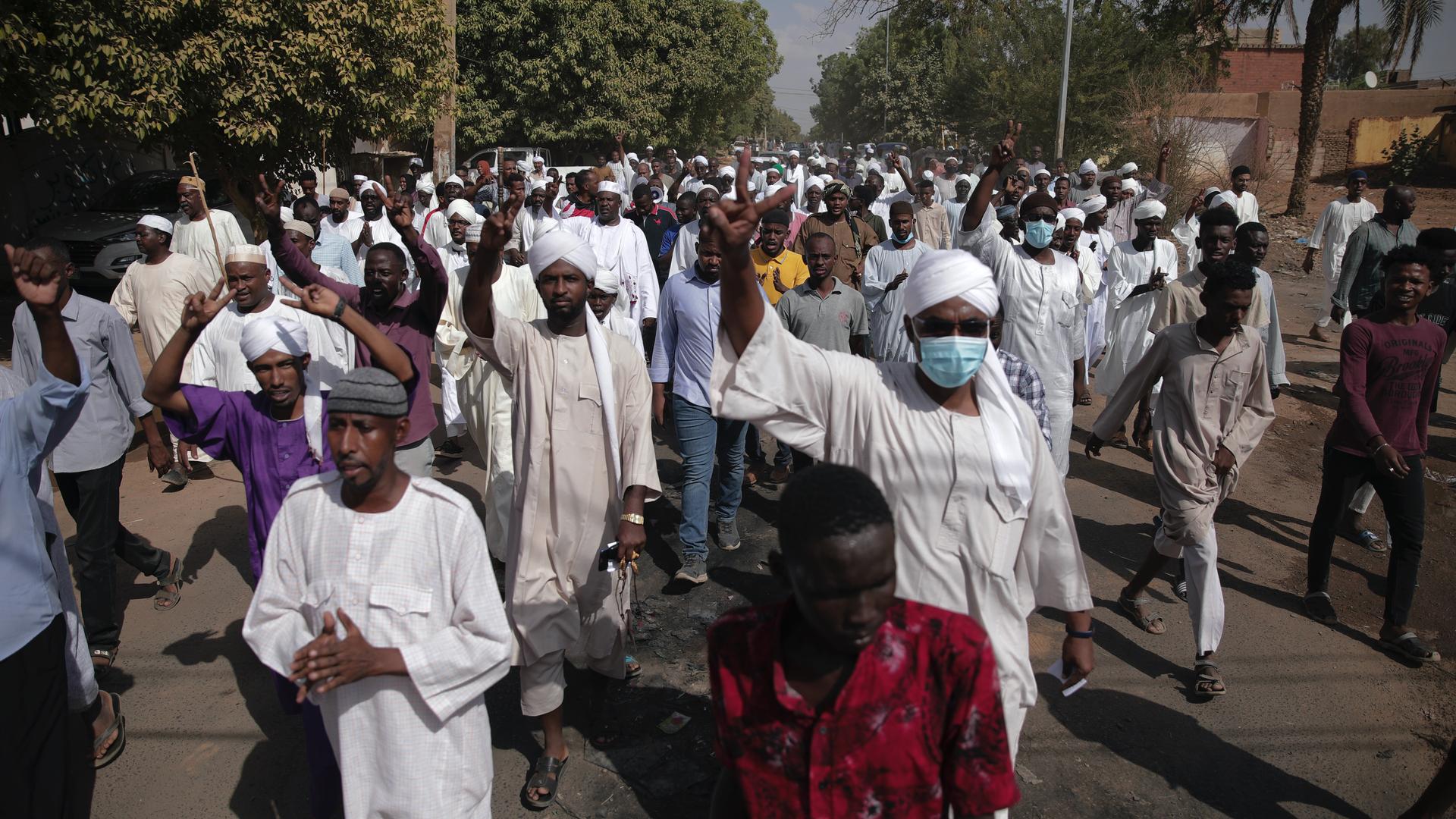Amid plans of mass protests, Sudan’s military suggests ousted prime minister can return to power
Days after armed forces detained the Sudanese prime minister and dissolved his government, the leader behind the military takeover, Gen. Abdel Fattah al-Burhan, appears to be backtracking on some of his actions.
During a speech on Thursday, Burhan said they would be forming a new government, and that Prime Minister Abdalla Hamdok, who has since been released, could once again be at the helm.
Regardless, civil disobedience continues across Sudan and mass, nationwide protests are planned for Saturday.
Related: Sudan’s ousted ambassador to the US says resorting to ‘the gun’ doesn’t aid the revolution
International pressure has been mounting against the military in recent days from the United States to the African Union.
On Thursday, the United Nations Security Council, currently helmed by Kenya, called on the military to restore Sudan’s joint military-civilian transitional government that was tasked with steering the country to democratic elections.
“The natural inclination from the international community is to cut a deal to find a way out of this, to relieve the pressure that’s been growing and to cut some political deal that would preserve some of the military’s interests, give the civilians what they want.”
“The natural inclination from the international community is to cut a deal to find a way out of this, to relieve the pressure that’s been growing and to cut some political deal that would preserve some of the military’s interests, give the civilians what they want,” said Cameron Hudson, senior fellow at the Atlantic Council and former US diplomat to Sudan.
The partnership between the military and civilians has been tense from the beginning when they agreed to share power following the ousting of former dictator Omar al-Bashir in 2019.
This year, many in the Forces of Freedom and Change were becoming increasingly frustrated with what they saw as the military’s attempts to undermine the transitional government amid an already fractured political environment.
Related: Protests erupt across Sudan against military coup
“The question is, what is the arrangement that people are going to accept?” Hudson asked.
“Two years on, they’re still attempting to seize power. This shows that any type or any form of partnership is just absurd,” said Samahir el-Mubarak, a pharmacist in Khartoum and a spokesperson for the Sudanese Professionals Association, which has been organizing nationwide strikes and protests all week.
“Even if there are pressures to go back to the partnership, everybody should know that this is a time bomb that’s going to explode any moment.”
“Even if there are pressures to go back to the partnership, everybody should know that this is a time bomb that’s going to explode any moment,” she said.
In an interview with PBS NewsHour this week, however, the US Special Envoy to the Horn of Africa Jeffrey Feltman said that it was not realistic to sideline the military entirely during Sudan’s transition to democracy.
“There’s a more fundamental issue at play here, which is the fact that the military, since Sudan’s independence in 1956, except for a few very brief periods, has essentially run this country,” Hudson said.
But this could be a turning point. Despite a nationwide internet and telecommunications shutdown, protesters are planning mass peaceful demonstrations across Sudan on Saturday to reject the military takeover.
Related: Sudanese protester: ‘Our numbers are too big to be ignored’
Mubarak said they are distributing leaflets, painting graffiti on the walls of Khartoum and setting up barricades to block armed military vehicles from harming them.
Multiple people have already died this week at the hands of armed forces according to the Central Committee of Sudanese Doctors.
Videos circulating on social media show armed men flogging women, shaving the heads of youth and shooting into crowds of demonstrators.
But Mubarak said that is not going to stop them.
“We are aware that if we do not fix our country, if we do not set the way we want our future to be, nobody else will do it for us,” she said.
Our coverage reaches millions each week, but only a small fraction of listeners contribute to sustain our program. We still need 224 more people to donate $100 or $10/monthly to unlock our $67,000 match. Will you help us get there today?
